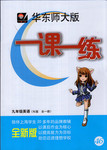题目内容
"A good book for children should simply be a good book in its own right ," says Mollie Hunter. Born and brought up near Edinburgh,Mollie has devoted her talents to writing primarily for young people. She firmly believes that there is always and should always be a wider audi?ence for any good book whatever its main market is. In Mollie's opinion,it is necessary to make full use of language and she enjoys telling a story,which is what every writer should be doing. "If you aren't telling a story,you're a very dead writer indeed," she says. With the chief function of a writer being to entertain (让人愉快) ,Mollie is indeed an entertainer. "I have this great love of not only the meaning of language but of the music of language," she says. "This love goes back to early childhood. I've told stories all my life. I had a school teacher who used to ask us what we would like to be when we grew up and,because my family always had dogs,and I was very good at handling them,I said I wanted to work with dogs,and the teacher always said ' Nonsense,Mollie,dear,you'll be a writer. ' So finally I thought that this woman must have something,since she was a good teacher and I decided when I was nine that I would be a writer."
This childhood intention is described in her novel,A Sound of Chariots,which although written in the third person is clearly autobiographical (自传体的) and gives a picture both of Mollie's ambition (理想) and her struggle towards its achievement. Thoughts of her childhood in?evitably (不可避免地) brought thoughts of the time when her home was still a village with butter?cup meadows and strawberry fields―sadly now covered with modern houses. "I was once taken back to see it and I felt that somebody had lain dirty hands all over my childhood. I'll never go back," she said. "Never.""When I set one of my books in Scotland," she said, "I can recall my romantic (浪漫的) feelings as a child playing in those fields,or watching the village black?smith at work. And that's important,because children now know so much so early that romance can't exist for them,as it did for us."
( ) 5. What does Mollie Hunter's opinion about the nature of a good book?
A. It should not aim at a narrow audience.
B. It should be attractive to young readers.
C. It should be based on original ideas.
D. It should not include too much conversation.
( ) 6. In Mollie Hunter's viewpoint,which of the following is one sign of a poor writer?
A. Being poor in life experience. B. Being short of writing skills.
C. The weakness of description. D. The absence of a story.
( ) 7. In comparison with children of earlier years,Mollie feels that modern children are
A. more intelligent B. better informed
C. less eager to learn D. less interested in reality
( ) 8. What's the writer's purpose in writing this text?
A. To describe Mollie Hunter's most successful books.
B. To share her enjoyment of Mollie Hunter's books.
C. To introduce Mollie Hunter's work to a wider audience.
D. To provide information for Mollie Hunter's existing readers.
ADBC
阅读带来的快乐。一本好书对于孩子们是多么重要啊!
5. A细节理解题。由and should always be a wider audience for any good book这句可以看出。
6. D细节理解题。从she enjoys telling a story,which is what every writer should be do?ing可以看出。
7. B推理判断题。最后一句有提示。
8. C全文归纳判断题。

 华东师大版一课一练系列答案
华东师大版一课一练系列答案